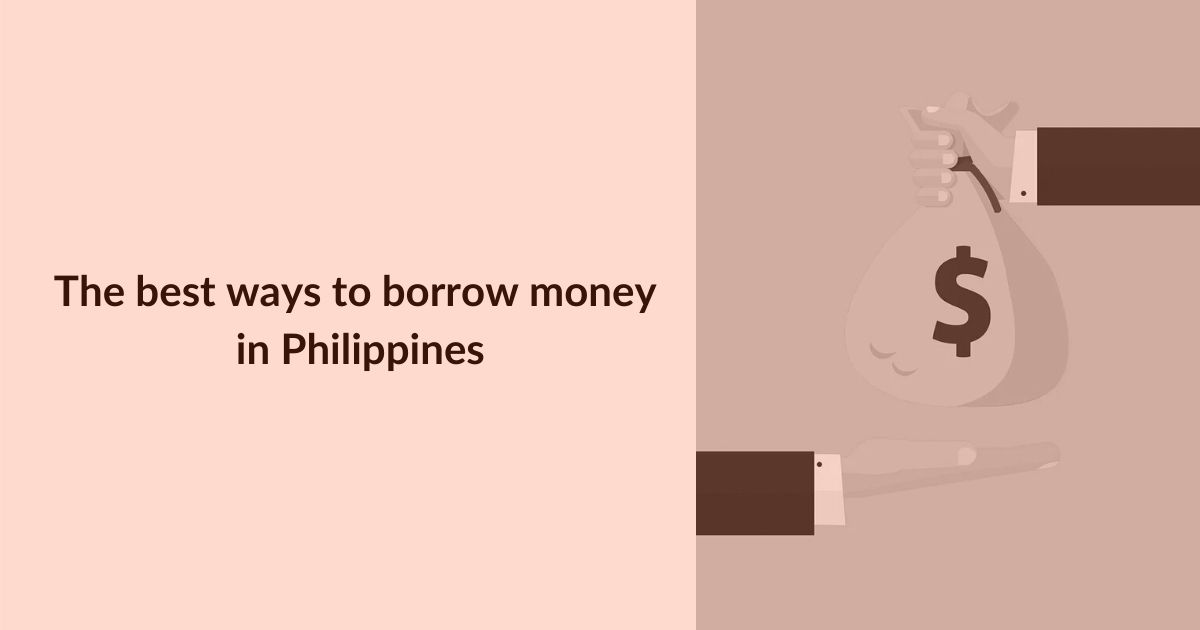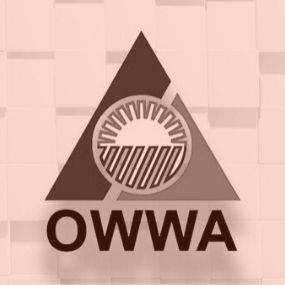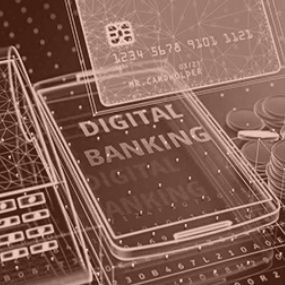
Borrow Money in the Philippines. The Best Ways

The modern world is tough. Even countries have to apply for credits increasing the global debt, so what can we say about regular people? In regions with poor to average economies like the Philippines, citizens often don’t have enough funds to live as they want. Of course, they can buy food and clothes. But what about education? Appliances? Travels?
This forces people to borrow. They contact friends and parents, ask colleagues for extra cash, go to banks and pawnshops, install P2P lending apps, try to find gigs, and so on. National economies respond to the demand by offering more options for borrowing/lending. The question is where to borrow money instantly and safely.
Our guide will help. In the next sections, we will try to understand the cultural phenomenon of “utang” typical for the Philippines. Surely, we will also focus on how to borrow money in bank, state-owned firms, private companies, etc. Traditional and alternative ways of borrowing are just below.
Table of Contents Borrow Money in the Philippines
The Concept of Utang
For ages, Filipino citizens have been following the vision of utang, which can be translated as debt. It says that it’s totally normal to borrow money. At some point, everybody will have to ask parents about extra cash, borrow from a co-worker, apply for a credit or even turn to a loan shark. Utang helps Filipino people to accept this fact and think positive.
In fact, even the largest enterprises get credits to acquire more capital and grow their businesses. In this case, utang is typical for the whole global economy, not for the Philippines only. However, local residents have created a striking range of options that answer how to borrow money. You can find state and private firms, entities and individuals, pawnshops and joint funds, and many more. Let’s look at the best ways to borrow money Philippines.
Traditional Lending Options
We want to start with classic approaches. They are similar across countries so it should be simple to grasp the idea. In this first section, we will review government companies along with state-owned banking corporations, traditional private banks, and small lending firms that target underbanked customers.
Regardless of the choice where to borrow money, remember to deal with reputable companies only. Some companies may list tempting conditions like zero-interest loans or instant credits without verifications. Most often, they just want to scam you. Choose licensed and trusted partners, avoid frauds!
1. Governmental Agencies
In total, there are three governmental lending companies in the Philippines. They help with various insurance and coverage programs. They also allow you to borrow money online or offline. Here are the names and the key info:
- GSIS. A fund that provides social security services to government workers. It delivers regular loans and so-called conso-loans that help to refinance debt. GSIS has convenient conditions but works with its members only.
- Pag-IBIG. This institution provides saving programs to employed Filipino citizens. It also has multi-purpose loans based on borrowers’ salaries and fund contributions. Pag-IBIG supports online interactions if you prefer them.
- SSS. Like GSIS, this fund also delivers social security benefits to Filipino members. However, it’s open to all active employees, not only government workers. SSS has dozens of loans, including salary, housing, corporate, calamity, etc.
Note that you should be a fund’s member to apply for lending products. Also, remember that governmental organizations have pretty low rates but ask for lots of documents and proofs. They may process applications for several weeks, as well.
Apart from the above-mentioned funds, there are also several state-owned banks. The most famous examples are DBP, LandBank, and UCPB. Their requirements, borrow money form points, and T&C are similar to those of private banks.
2. Private Banks
The next category is wider. It includes all small and big banking companies that operate in the Philippines and have at least one credit/lending product. There are over 200 banks in the country so we will not list all of them. Below, there are the most popular names with large asset capitals and good reputation:
- BDO;
- BPI;
- Citibank;
- HSBC;
- Maybank;
- RCBC;
- Security Bank.
Other universal, rural, cooperative, and savings banks are listed here.
When choosing a lender, remember a few key facts about Filipino banks. Firstly, you can’t borrow money without credit check procedures. Also, it’s barely possible to get a loan if you’re unemployed. Finally, banks may ask for collateral. It means that you will have to use any property or valuable asset as a guarantee that you can return funds.
Banks care about their reputation so they run dozens of checks, require various documents, and process applications for up to 7 banking days. For this, you can get low interest rates and huge loan amounts. In addition, banking groups have loyalty programs so existing clients can expect better conditions, lower rates, discounts, quick installments, and more.
3. Small Private Firms
If you are unable to provide different official papers or wait for days, choose smaller private lenders instead of banks. These companies borrow money with bad credit, work with unemployed customers, process applications within 24 hours, and require only a valid ID for a loan application, usually. Surely, most of them work online and have official apps.
Similarly to banks, there are dozens of financial startups. Thus, look at these well-known examples:
- Asteria;
- Atome;
- CashCat;
- Cashwagon;
- Cash Mart;
- Loanranger;
- Robocash;
- Tala.
A few drawbacks of private firms include higher interest rates and more risks. For instance, if a bank has a monthly interest rate from 0.5% to 1.5%, an online lender lists the same interest for a day! Anyway, it’s a viable choice if you want to borrow money online instantly Philippines and is ready to return the funds quickly.
Alternative Lending Options
Here’s a quick statistical fact: only 22.6% of Filipino adults had bank accounts in 2017. Today, the picture is similar. The issue with traditional lenders is that they list strict requirements. To get a loan, borrowers have to provide dozens of documents, including payslips, bills, and employment papers. Moreover, these enterprises feature lengthy approval/disbursement processes.
That’s why we often hear a question like “where can I borrow money with no job?” from people who need extra funds urgently. They aren’t ready to submit the required documents and they can’t wait longer than a few days. And that’s why these customers have to look for other options. If offers from startups and private companies don’t meet the borrowers’ goals, they can go for alternatives that we list below.
1. Co-Workers
The system of savings known as paluwagan provides for creating a self-organized collective fund. Each participant contributes a certain sum so it’s possible to collect a lot together. Then, the first participant (you can decide who will be the first one depending on different factors) receives the entire amount and it all starts over.
2. Employers
In addition to colleagues, you can consider loans from employers if your company supports this option. Some businesses offer traditional personal loans. Others deliver extra cash as a part of general benefits programs so you can get the required money in advance. These offers are pretty convenient. Often, a money borrowing agreement of this type doesn’t include an interest rate at all. Payments are quick, too, as they are deducted from salaries automatically.
3. Friends and Family
Yes, it’s also a viable option. No documents, no collateral, no interest, no due dates. You just ask your school friend, your wife or your father for money and then return when you can. No matter how tempting this way is, it’s also quite dangerous. If you break your word, your relationship with friends/family will be ruined. “Friendly” debt is as risky as the bank one but it affects not only your finances but personal relations, too.
4. Letters of Guarantee
These documents open up the following opportunities for borrowers:
- Boost chances to get a personal loan. If you want to borrow money fast unemployed, a letter of guarantee from an individual or an entity will help. In a nutshell, this document says that your guarantor will cover debts related to this particular loan if you are unable to do this on your own. Explore examples of such letters to get the idea.
- Get goods or services in installments. In addition, letters of guarantee can be issued by banks on behalf of their customers who want to purchase something. Thus, your bank will act as a guarantor and pay for the product/service in case you can’t do this. It’s just like an installment but is more reliable.
Letters are a powerful weapon but they work only if you have reliable partners or banks where you’re a loyal client. For example, ask your boss to provide a letter of guarantee if you think it’s appropriate. Parents and wealthy friends can also help in this case. As for banks, build your history by using credit cards, opening deposits, and paying everything on time.
5. Peer-to-Peer Systems
Last but not least, there are national or international communities where individuals borrow and lend money. These P2P platforms are modern alternatives to a traditional paluwagan method mentioned above. Usually, they are accessible online and have an app to borrow money. They also allow users to invest and borrow money depending on their current goals.
The most popular P2P platforms in the Philippines are as follows:
- BitBond;
- Blend;
- FundKo;
- MoneyMatch;
- UpLoan.
Apart from Filipino systems, there are international apps focused on peer-to-peer lending. For instance, these are Lending Club, Upstart, Funding Circle, Peerform, Prosper, and Kiva.
More Lending Options
Apart from traditional and alternative ways to borrow and lend money online or offline, there are more exotic approaches. They are less popular because of the extra requirements. Still, if you need the money and the aforementioned options don’t work, consider the next points:
- Crowdfunding. If you have an idea of a cool project, consider running a crowdfunding campaign. In short, it helps to gather funds from hundreds and thousands of strangers for special rewards: early versions of your product, souvenirs, mentions, etc.
- Loan sharks or 5-6. This is probably one of the best answers to the question “how can I borrow money fast?” But they are extremely risky. Loan sharks’ interest rate may exceed 10,000% APR — more than 27% per day!
- Pawnshops. In the Philippines, this form is known as sangla. Pawnshops deliver instant cash for collateral — jewelry, tech devices, luxury items, etc. They have relatively low interest rates and don’t require docs. But it’s risky to pawn valuable things.
- Work. Okay, it’s the most exotic alternative because it requires you to, well, work. Small freelance gigs, large projects, regular jobs — these options let you exchange your time and knowledge for money. Sounds good, right?
While these options can be your last hope, be sure to try traditional and alternative ways before them.
Conclusion
Okay, we hope that this guide has answered the main question: “where can I borrow money online?”. It lists all basic and advanced ways of getting cash for your needs. Feel free to choose the most convenient option but also don’t forget about personal safety. Some ways like loan sharks may look cool but they may turn into big trouble. Thus, start your borrowing journey with thorough research of lenders. Good luck!









